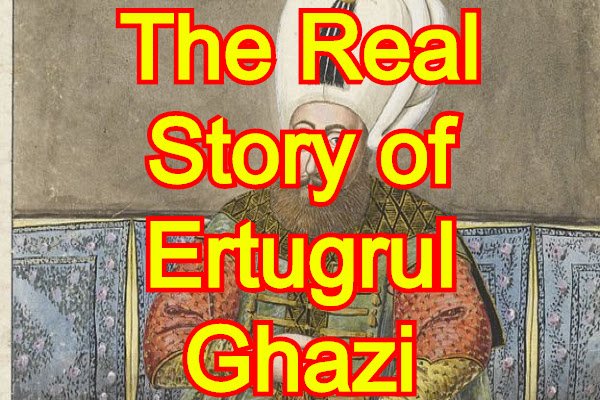The Real Story of Ertugrul Ghazi

In These days, the talk of Ertugrul can be seen everywhere in Pakistan. Due to the drama aired on PTV, Pakistanis have become very familiar with Ertugrul. In this article, we show you Ertugrul's life, his bravery, and above all his loyalty.
The tribe of Ertugrul lived in Khorasan, but when Genghis Khan destroyed the Khwarizmi Empire, his tribe migrated to Egypt, where there was also a Turkish government. This little Asian, now known as Anatolia, came here. Ertugrul's tribe, led by his father, Salman Shah, was heading for Syria. When they began to cross the Euphrates, Salman Shah drowned. After the death of his father, the head of the tribe passed to Ertugrul, who left for Asia Minor with the rest of his companions.
When Ertugrul became the chief of his tribe, his tribe consisted of only 420 families. While his tribe was on its way to Konya to seek refuge with Sultan Allauddin Seljuk, a very interesting incident took place on the way which became immortal in history and this event later became the foundation of the Ottoman Empire.
It so happened that while Ertugrul's tribe was on its way to Konya, Ertugrul saw two armies fighting near Angora on the way. He was unfamiliar with both armies but decided to help the weaker army. He took 400 cavalrymen with him and jumped into the battlefield, fighting alongside a weak army.
Ertugrul showed such vigor on the field that the opposing army fled the field. After his victory, Ertuلrul discovered that the army he had supported was the army of Alauddin Seljuk from whom he was seeking refuge, while his opposing army was the Tartars.
Sultan Allauddin Seljuk was very pleased with Ertugrul's exploits and bravery and gave Ertugrul to the fertile region of Sagut near the Byzantine border. This was an area frequented by the Byzantines. In just a few days, Ertuرrul showed his bravery throughout the region. Seeing Ertugrul's bravery, the surrounding Turkish tribes joined him and Ertugrul became a major force.
It would have been dangerous for Sultan Allauddin to gain such power from a chief, but he wisely appointed Ertugrul as his deputy. After becoming Sultan's deputy, Ertugrul fought several battles with the Byzantines and Tartars and liberated many occupied territories from their control.
The question also arises as to why Ertugrul was so powerful that he did not establish an independent state. The answer to this question, if given in one word, is loyalty. Ertugrul remained loyal to Sultan Ala-ud-Din Seljuk of Konya until the end and continued to be his deputy. Ertugrul could have taken advantage of the empire's internal weaknesses to become a sultan himself, but he remained loyal to the sultan to the end.
Later, Usman Khan I, the founder of the Ottoman Empire, like his father Ertugrul, remained loyal to the Sultan of Konya and enhanced the honor of his Sultan instead of enhancing his own glory through his conquests.
We see the moon sign in the Turkish flag. It was, in fact, the flag of Sultan Ala-ud-Din Seljuk, which Ertugrul maintained as his deputy, and to this day the moon is the national symbol of the greatness of the Turks.